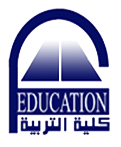The article presents a blended dialogic socio-constructivist pedagogy for language learning, emphasizing the importance of both individual and social aspects of learning. It argues that technology alone does not transform pedagogy; rather, it is the approach to technology that matters. The pedagogy combines personal freedom for reflection and individual assignments with social interactions like pair work and group discussions for collaborative knowledge construction. The progression from controlled, face-to-face activities to freer, online ones aids in consolidating new ideas and mastering language skills. The article supports its approach with literature on socio-constructivism, highlighting the synergy between individual constructivism and socio-culturalism. It draws on theories by Vygotsky and Piaget, advocating for a dialogic approach that extends learning beyond the classroom through web-mediated environments. This approach is particularly beneficial for English Language Learners (ELL), moving language learning from isolated mental functioning to real-world communication and fostering a participatory metaphor for language learning. The article concludes that blended learning, which combines web technologies with traditional pedagogies, is crucial for engaging learners in meaningful dialogue and practice.
Research Date
Research Department
Research Member
Research Vol
ERIC
Research Website
https://files.eric.ed.gov/fulltext/ED654973.pdf
Research Year
2024
Research Abstract


